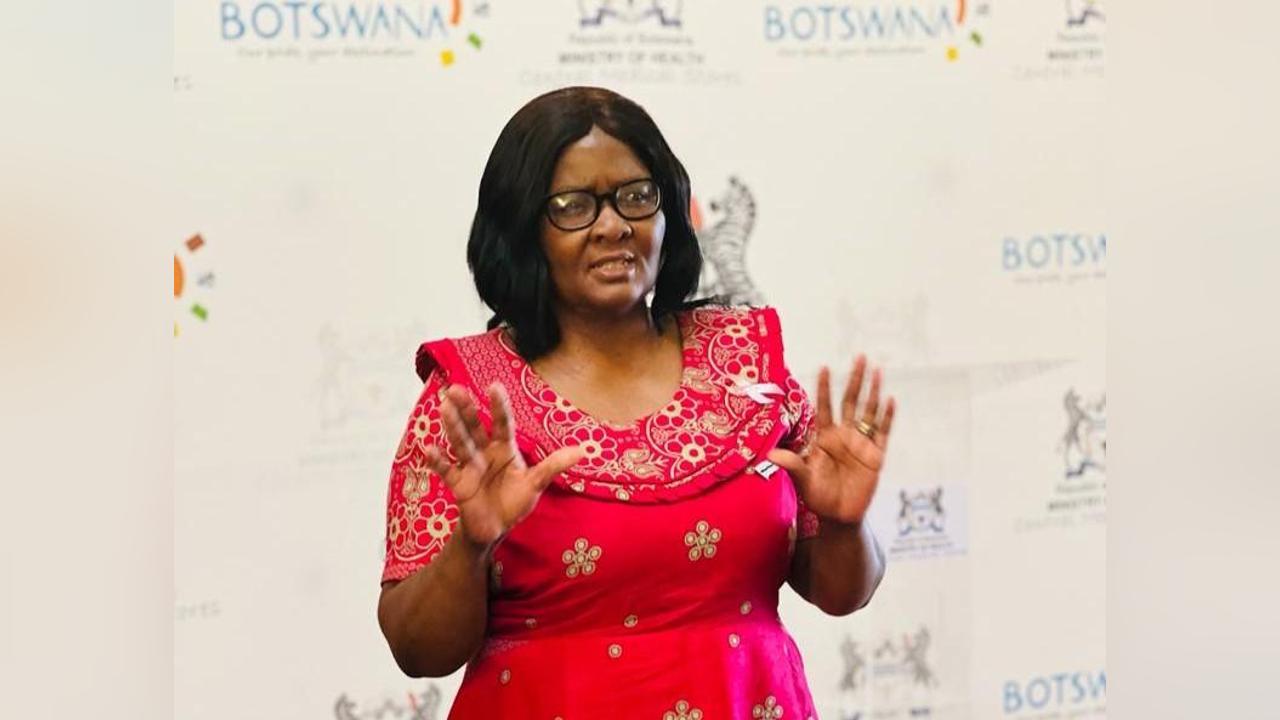Africa-Press – Botswana. The former head of CMS, Dr. Onalenna Seitio-Kgokgwe has warned that without structural transformation of CMS and broader reforms in procurement, the country will continue to face serious drug shortages, most of which are rooted in systemic problems long ignored by the government.
The former head of the Central Medical Stores (CMS), Dr. Onalenna Seitio-Kgokgwe, has broken her silence on the crisis at the country’s main drug supply agency, saying the Ministry of Health and government at large must shoulder the blame instead of vilifying CMS employees.
CMS has been under intense scrutiny recently after President Duma Boko dispatched a task team to probe alleged corruption and inefficiencies in the supply of medicines.
But Dr. Kgokgwe, a public health practitioner and researcher in health systems management, insists CMS staff have been unfairly scapegoated.
“When CMS fails to deliver on its mandate, the Ministry of Health must account, and the government must account, because CMS is a department under the ministry like all others,” she told this publication in an interview.
She added that CMS employees work tirelessly, often during weekends and holidays, despite being under-resourced and without adequate decision-making authority. “It is unjustified and unfair for the nation to keep pointing fingers at workers who cannot defend themselves. I know the men and women at CMS— they work hard under difficult circumstances.”
Structural weaknesses
According to Dr. Kgokgwe, CMS manages more than 2,000 health products with an annual budget exceeding one billion pula and supplies medicines to over 80% of the population. Yet, unlike other ministries with far smaller budgets, CMS lacks a fully resourced procurement and finance unit.
“Even with this size of procurement and budget, CMS has no decision-making powers. Authority is centralized at the Ministry headquarters. This has long been identified as a barrier to efficiency—going back to the 2002 organizational review, whose recommendations remain unimplemented,” she said.
“CMS has an annual budget of more than one billion pula. This is definitely huge procurement, with a huge budget. Can we just pause and consider what structures are there, and who is there (qualification and numbers) at CMS to manage procurement of this magnitude? This issue has been raised over and over again,” she added, further saying “some of the Ministries have a budget far less that what CMS has, but they have full complement in their procurement and Finance units-Director Procurement; Director Procurement Oversight; and other senior procurement staff; same goes for their Finance Units. The same cannot be said with CMS.”
Dr Kgokgwe further pointed to legal and regulatory hurdles, such as the Public Procurement Act of 2021, which reserves tenders for citizen-owned companies. While well-intentioned, she said, the law has worsened shortages by inviting middlemen and fronting in a market where Botswana has little manufacturing capacity.
Global Supply Complexities
Dr. Kgokgwe warned that medicines are not consumer goods that can be easily stocked and bought off the shelf. “The global supply chain for medicines is complex, requiring long-term contracts, demand forecasting, and often upfront payments. Under current government financial regulations, CMS cannot make such commitments, which undermines supply reliability.”
Recommendations
She urged government to revisit earlier studies, including the 2002 review and the 2023–2028 Botswana National Supply Chain Strategy, both of which recommended transforming CMS into an autonomous organization.
Other critical issues, she noted, include: Ensuring medicines reach remote health posts and clinics, improving storage conditions and accountability at facility level, addressing the shortage of pharmacy technicians and disputes over who manages medicines in lower-level health facilities, developing a logistics information system to track consumption in real time for better forecasting.
On costs, Dr. Kgokgwe stressed the need to cut out the middlemen by allowing government to procure directly from reputable international manufacturers through competitive processes.
“Direct procurement from manufacturers can reduce mark-ups and improve efficiency. But this requires regulatory oversight and financial flexibility, which current systems don’t allow,” she said.
Recent pricing controversy
“P705 M and P80 M as annual CMS budget, I took it that it was an issue of using different currencies. It must have been some misunderstanding. If that is indeed P 80M, I will call upon BOMRA to be on its feet to safeguard the nation,” she said.
Bigger picture
While acknowledging the president’s task team, Dr. Kgokgwe cautioned that reforms must go deeper than blame games. “Temporary fixes will not solve systemic problems. Without structural transformation of CMS and broader reforms in procurement, the country will continue to face drug shortages.”
For More News And Analysis About Botswana Follow Africa-Press






